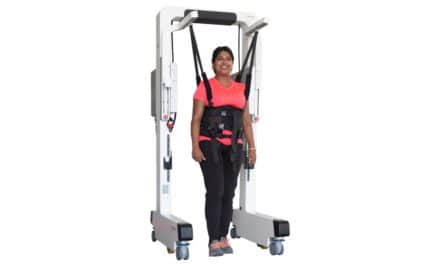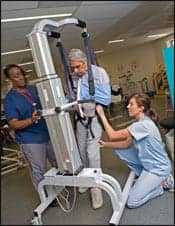Research conducted by Johns Hopkins indicates that better-educated individuals may be significantly more likely to recover from a moderate to severe traumatic brain injury (TBI). According to a news release from Johns Hopkins Medicine, its researchers observed that individuals with at least a college education were seven times more likely than those who did not finish high school to be disability-free one year following a TBI serious enough to warrant time in a hospital or rehabilitation facility.
The release notes that the results reflect those seen in Alzheimer’s disease research, which suggests that higher educational attainment has been linked to slower progression of dementia.
“…Our work suggests that cognitive reserve—the brain’s ability to be resilient in the face of insult or injury—could account for the difference,” points out Eric B. Schneider, PhD, study leader, epidemiologist, Johns Hopkins University School of Medicine’s Center for Surgical Trials and Outcomes Research. The release reports that Schneider conducted the research alongside Robert D. Stevens, MD, neuro-intensive care physician, Johns Hopkins’ Department of Anesthesiology and Critical Care Medicine.
The study encompassed a total of 769 patients enrolled in the TBI Model Systems database, an ongoing multi-center cohort of patients funded by the National Institute on Disability and Rehabilitation Research. The patients had reportedly been hospitalized with a moderate to severe TBI and subsequently admitted to a rehabilitation facility.
The researchers note that among the 769 patients, 27.8% were free of any detectable disability one year following injury. A total of 23 patients who did not complete high school, 9.7% of those at that educational level, recovered.
One hundred and thirty-six patients with between 12 and 15 years of school, 30.8% of those at the educational level, recovered, and the results also indicate that nearly 40% of patients who had 16 or more years of education fully recovered. The biological mechanisms that may drive the link between years of schooling and improved recovery are still unclear, according to Schneider.
“People with increased cognitive reserve capabilities may actually heal in a different way that allows them to return to their pre-injury function and/or they may be able to better adapt and form new pathways in their brains to compensate for the injury…” Schneider explains. Schneider adds that further research is required to confirm the results, and also to use the knowledge to assist individuals with less cognitive reserve.
Stevens echoes Schneider’s sentiment, and says in the release, “Understanding the underpinnings of cognitive reserve in terms of brain biology could generate ideas on how to enhance recovery from brain injury.”
Source: Johns Hopkins Medicine





